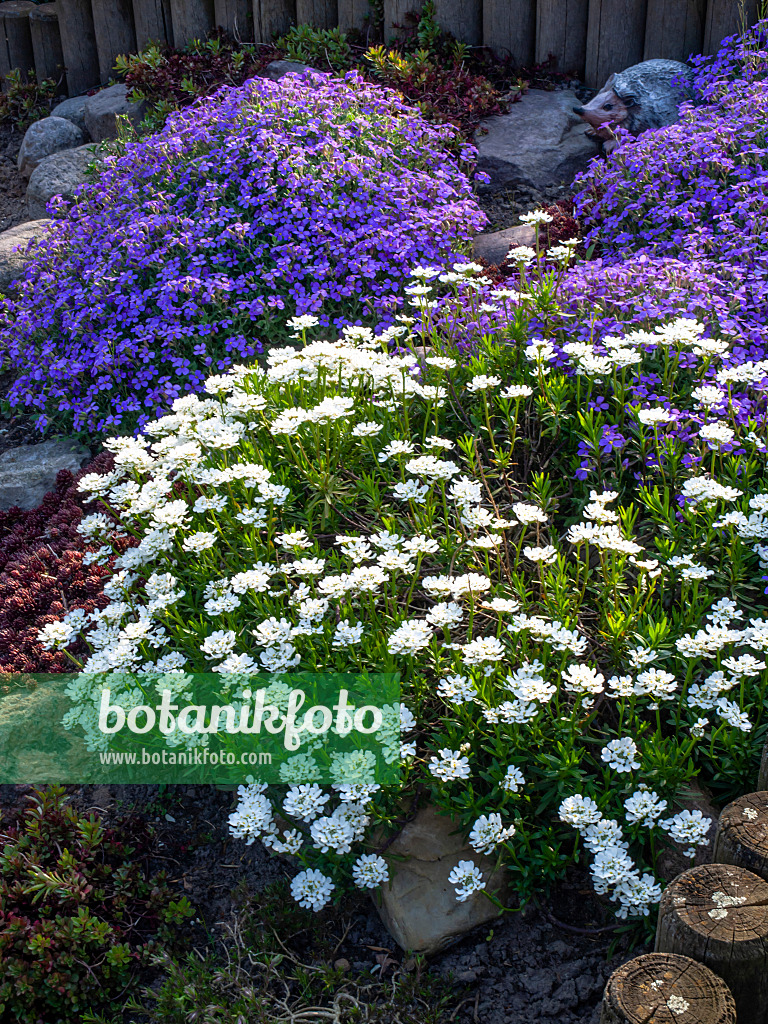Candytuft Companion Plants: A Comprehensive Guide
If you're a plant enthusiast, you may be familiar with candytuft - an evergreen perennial that produces beautiful, white flowers in the spring. Candytuft is a popular choice for gardens due to its hardiness and versatility. However, did you know that candytuft can also make an excellent companion plant? In this guide, we'll explore everything you need to know about candytuft companion plants.
What are Candytuft Companion Plants?
Candytuft companion plants refer to other types of plants that are grown alongside candytuft. These plants are carefully selected based on their ability to complement and enhance the growth of candytuft. By choosing the right candytuft companion plants, you can create a more vibrant and healthy garden space.
Benefits of Candytuft Companion Plants
There are many benefits to growing candytuft companion plants. For one, they can help improve soil quality by fixing nitrogen and adding organic matter. Additionally, these companion plants can attract beneficial insects such as bees and butterflies, which can aid in pollination. Finally, candytuft companion plants can help to deter pests and diseases, which can reduce the need for pesticides.
Choosing the Right Candytuft Companion Plants
When selecting candytuft companion plants, it's important to consider a few key factors. First, you'll want to choose plants that have similar light and water requirements to candytuft. You'll also want to select plants that have complementary colors and textures, to create a visually appealing garden space. Finally, consider selecting plants that bloom at different times of the year, to ensure that your garden always looks its best.
Companion Plants for Full Sun
If you're growing candytuft in full sun, there are several companion plants that can work well. These include:
- Lavender - which has a similar growth habit and attractive purple flowers
- Sage - which is drought-tolerant and has beautiful blue-gray foliage
- Rosemary - which has fragrant leaves and attractive blue flowers
Companion Plants for Part Shade
If you're growing candytuft in a part shade location, there are also several great companion plants to consider. These include:
- Bleeding Heart - which has delicate pink or white heart-shaped flowers
- Columbine - which has unique, bell-shaped flowers in a variety of colors
- Hosta - which has large, attractive leaves in shades of green or variegated colors
Companion Plants for Containers
If you're growing candytuft in containers, there are several compact companion plants that can work well. These include:
- Pansies - which have colorful, cheerful flowers and can be grown as annuals or perennials
- Creeping Thyme - which has fragrant leaves and can help to fill in gaps in the container
- Miniature Roses - which have small, attractive blooms and can be trained to climb up a trellis
Maintaining Your Candytuft Companion Plants
To keep your candytuft companion plants healthy and happy, it's important to provide them with the right care. This includes regular watering, fertilizing, and pruning as needed. Additionally, you may want to consider using organic pest control methods to keep pests at bay.
Watering
Candytuft companion plants should be watered regularly, especially during periods of drought. However, it's important not to overwater, as this can lead to root rot. The amount of water your plants need will depend on factors such as the type of soil, the amount of sunlight, and the temperature.
Fertilizing
Candytuft companion plants can benefit from regular fertilizing, which can help to promote healthy growth and flowering. You may want to use a balanced fertilizer that contains equal amounts of nitrogen, phosphorus, and potassium. Alternatively, you can use an organic fertilizer such as compost or worm castings.
Pruning
To keep your candytuft companion plants looking their best, it's important to prune them as needed. This may involve deadheading spent flowers or cutting back overgrown branches. Be sure to use sharp, clean tools and make cuts at a 45-degree angle to promote healing.
Candytuft companion plants can be a great addition to any garden space. By selecting the right plants and providing them with the right care, you can create a beautiful, healthy garden that will thrive for years to come.
FAQs
1. Can candytuft be grown as a standalone plant?
Yes, candytuft can be grown as a standalone plant. However, planting it alongside other companion plants can help to enhance its growth and overall appearance.
2. What types of soil are best for candytuft companion plants?
Candytuft companion plants generally prefer well-draining soil that is rich in organic matter. However, the specific type of soil will depend on the individual plant's needs.
3. How often should candytuft companion plants be fertilized?
Candytuft companion plants should be fertilized regularly, typically every 4-6 weeks during the growing season.
4. Can candytuft companion plants be grown indoors?
Some candytuft companion plants may be suitable for indoor growing, depending on their light and water requirements. However, it's important to provide them with adequate space and ventilation to ensure healthy growth.
5. Are candytuft companion plants resistant to pests and diseases?
While candytuft companion plants can help to deter pests and diseases, they are not completely immune. It's important to monitor your plants for signs of infestation or disease and take action promptly if needed.










Post a Comment for "Candytuft Companion Plants: A Comprehensive Guide"